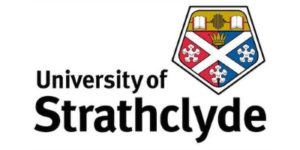Home » Posts tagged 'Discrete Element Method'
Tag Archives: Discrete Element Method
Computational Modelling for Future Research in Geoenvironmental Sciences webinar series – 11th July 2021
The organising committee of the “Computational Modelling for Future Research in Geoenvironmental Sciences” (CMFRGS) webinar series invites you to its 1st webinar on “Discrete Element Method” presented by A/Prof Sergio Galindo Torres.
Webinar 1 is scheduled to be hosted at 9:00 am (CEST), 14th July 2021 with registration for this webinar closing at 24:00, 11th July 2021 (CEST).
You may find further info and register (free but mandatory) here: https://www.m2clab.com/cmfrgs-webinars
Research positions at Imperial College (UK), EPFL (Zwitzerland), Newcastle University (UK)
Applications are invited for a one year full-time researcher based in the Department of Civil and Environmental Engineering at Imperial College London in the area of discrete element modelling and computational fluid dynamics. The successful applicant will join the Geotechnics research group as a member of research staff and will conduct research on an EPSRC funded project entitled “Particle-scale investigation of seepage induced geotechnical instability”. The work will be conducted under the supervision of Professor Catherine O’Sullivan.
The start date for this research post is July 1 2019.
More information at: https://www.imperial.ac.uk/jobs/description/ENG00849/research-assistantassociate/
Postdoctoral position in Energy Geostructures field, Laboratory of Soil Mechanics (LMS), EPF Lausanne.
The position, funded by Swiss National Science Foundation (SNSF), aims at providing fundamental information on the mechanisms governing the cyclic thermo-mechanical behaviour of energy geostructures by analyzing multiphysical processes occurring within the soil, soil-structure interface and along energy geostructures through an experimental, theoretical, and numerical approach.
The position is now open and will start on August 1st 2019 or upon agreement.
More information in: Postdoc-Position-LMS-EPFL-2
Post of Research Assistant/Research Associate in the School of Engineering at Newcastle University in the area of computational geotechnics. The successful applicant will carry out high-quality research on infrastructure embankments and the impacts of climate change. This project is part ACHILLES consortium which comprises the Universities of Newcastle, Durham, Loughborough, Southampton, Bath and Leeds and the British Geological Survey.
The closing date for applications is 26th May 2019.
More information at: https://www.jobs.ac.uk/job/BRV878/research-assistant-associate-d174412r2
Borsa di Dottorato presso University of Strathclyde (UK) e University of Chalmers (Svezia)
Il Department of Civil and Environmental Engineering dell’Università di Strathclyde (Glasgow, UK) e il Department of Architecture and Civil Engineering dell’Università di Chalmers (Svezia) selezionano candidati per un dottorato sul tema ‘Clay micromechanics: from experimental evidence at the nano/micro scale to particle-scale modelling via Discrete Element Method’.
Durata: 3 anni
Borsa: £1230/mese
Data di inizio: quanto prima possibile ma, in ogni caso, non oltre il 30 settembre 2019.
Si richiede un voto di laurea non inferiore a 104/110 (possibilmente 110/110). Per ulteriori informazioni contattare il Prof. Alessandro Tarantino (alessandro.tarantino@strath.ac.uk).
Borse di dottorato presso University of Strathclyde, Glasgow – UK (scadenza 25/10/2018)
Il Department of Civil and Environmental Engineering dell’University of Strathclyde (Glasgow, Scotland, UK) offre due posizioni di dottorato sui seguenti temi:
1) Clay micromechanics: from experimental evidence at the nano/micro scale to particle-scale modelling via Discrete Element Method
2) Engineering vegetation to stabilise geotechnical structures: developing open-air portable laboratory to design vegetation-based remedial measures
Durata: 3 anni
Borsa: £1230/mese
Scadenza della domanda: 25 ottobre 2018
La data di inizio è prevista tra gennaio e febbraio 2019. Si richiede un voto di laurea non inferiore a 104/110 (possibilmente 110/110). Per ulteriori informazioni, contattare il Prof. Alessandro Tarantino (alessandro.tarantino@strath.ac.uk)





